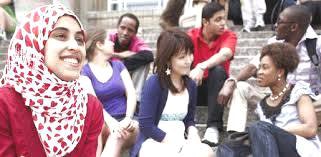
The three-day annual conference, titled “Inclusion, Innovation, and Impact,” kicked off yesterday at the Miami Beach Convention Center and is being sponsored by the British Council, an international organization that promotes educational opportunities and cross-cultural relations around the world.
“Urbanization plus digital communications plus education is a combination that is as revolutionary as railways and the new industrial manufacturing techniques of the 19th century,” says Sir Martin Davidson, the chief executive of the British Council.
“Suddenly your hard-won skills have value because you are within the reach of jobs and potential customers on the other side of the world. But you are also in competition with the best talent in the world. The excellence of your local degree and your top-ranked local university will not be enough unless it also connects you to that global market,” adds Davidson.
At the opening plenary session, Dr. Hans Rosling, a medical doctor and professor at the Karolinska Institute in Sweden, warned that by the end of the century nearly 80 percent of the world’s population will reside in Africa and Asia, requiring thought leaders to develop new ways of how best to provide educational opportunities to these demographics.
Yusuf Adamu, the registrar at Federal University Dutse, made the 12-hour trek by plane from Nigeria in hopes of forging new partnerships with other institutions, even as he focuses on how best to recruit and retain students at one of Nigeria’s newest universities.
With a student population of 1,000, the university opened its doors in 2011. It currently offers a four-year degree program and a number of degree offerings ranging from math and science to the humanities.














